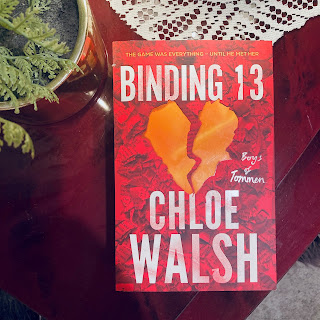Past and Present: How the Lives of One Generation Shape the Next in Anna Romer's Beyond the Orchard.
Hello and welcome to my stop on the Beyond the Orchard blog tour. I am very, very excited to share this brilliant and insightful post that author Anna Romer has written about her latest novel, Beyond the Orchard. (In fact, it's been difficult for me keeping it under wraps these past few weeks.) Anyway, a very sincere thank you to Anna Romer and also her publisher Simon and Schuster Australia for putting together this brilliant post and the Beyond the Orchard Blog Tour ...
Past and Present: How the
Lives of One Generation Shape the Next in Anna Romer's Beyond the Orchard.
When I first started collecting ideas for Beyond the Orchard, all I had was a
location – a clifftop guesthouse along the great Ocean Road in Victoria – and
the idea of someone guarding a terrible secret. But as the story began to
unfold, I realised that the secret keeper, Edwin Briar, would cast his shadow
over just about every other character in the novel. His actions would link the
central mystery to the next generation and beyond.
I've always been drawn to ‘sins of the father’ type stories,
where someone's mistakes ripple outwards and affect everyone connected to them,
often in devastating ways. Beyond the
Orchard is very much a tale about the choices we make, and how even the
best intentions can lead to heartbreak.
Edwin is a quiet, bookish man who's now in his nineties. He
hides away in his rundown old guesthouse, tormented by a life he bitterly
regrets. Knowing that his last days are approaching, he revisits the past in
his mind, brooding over the loved ones he’s lost. He’s haunted by the idea that
if he’d made better choices, been less swayed by others, then his life would
have turned out quite differently. But actions are the outward manifestation of
a person’s inner world. Edwin always did what he believed was for the best; he
always thought his actions justified. So even if he could have relived his time
over, perhaps his driving emotions would have forced him along the same path as
before.
I always find myself returning to the theme of past crimes
bubbling up to the surface many years later. In Beyond the Orchard, those ‘crimes’ were mostly committed with good
intent. Some may not seem to be crimes at all. When Edwin and his wife Clarice
welcome young Orah into their home, they want only to give her the best life
possible. They love her and believe they are doing the right thing. How can
they know that their kindly intentions will lead to a decision with consequences
that will ripple through the next two generations?
The main character in Beyond
the Orchard is Lucy Briar, Edwin's granddaughter. Like Edwin, Lucy is
haunted by her past. A small lie she told as a child had tragic repercussions,
and she blames herself for her mother’s death. As a result, she's spent much of
her life running away from conflict with others. Her father, Ron, turned to
alcohol when Lucy's mother died, and abandoned Lucy into the care of her aloof
and reclusive grandfather, Edwin. Ron always resented Edwin for being an
uncaring father; for being obsessed with ghosts from the past while neglecting
his flesh-and-blood family. Yet Ron's abandonment of 10-year-old Lucy echoes
his own father’s ‘abandonment’ of him.
Each of the present-day characters – Lucy, Ron, even Lucy's
mother – are all, in their different ways, profoundly affected by the choices
Edwin made us a much younger man. Linking the generations together in this way is
like piecing together a patchwork quilt; sometimes it takes a lot of shuffling
around to get the squares into the right order – an order that’s pleasing and
logical and enhances the overall nature of the quilt. Finding that elusive
‘click-point’ – where the story settles into its own rhythm and pace – can take
months or work. Yet for me, the task of creating convoluted emotional burdens
and scars for my characters is one of the highpoints of writing a novel. (I know.
Mean, aren’t I?)
One generation shaping the next is a powerful theme, I think
because we can all relate to it; all of us are, in some way, products of the generation
who came before us. As a story theme, it provides an endless source of conflict
– and also, endless fun for the writer who, like me, enjoys exploring the
complex relationships of characters overshadowed by the past.





Comments